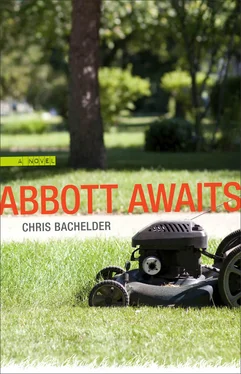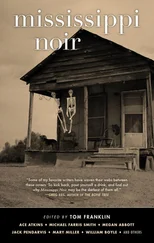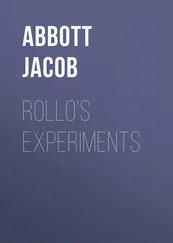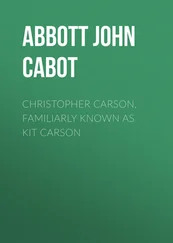25 Abbott and the Parable of the Giraffe
Abbott’s daughter is having a hard time of it indeed. She is trying to lift the stuffed giraffe from the floor, and she cannot do it. She has been at it for some time — nearly a minute, perhaps — and she cannot lift the giraffe. The toy is not large, nor is it heavy. Abbott watches, refusing, out of some combination of principle and indolence, to facilitate. He admires her focus, her tenacity, her intrinsic dignity. She is a straight arrow of intent. Her faint eyebrows are squeezed in concentration and purpose, but she has not become frustrated or angry. She is leaning over, using both hands, pulling the giraffe’s head, and the world is simply not working as it supposed to, as it has up to this point. The reason that Abbott’s daughter can’t lift the giraffe is that she is standing on it. Once she steps off of the animal, she has a much easier time lifting it, which she does, with neither pride nor humiliation. And then, giraffe clamped in her armpit, she moves forth to the next thing.
As Aristotle probably asked, Is it not prudent to diagnose the diagnoser ? Briefly, then: Abbott’s parents were divorced when he was nine years old. Afterward, his parents had joint custody, so Abbott moved between their residences every two weeks. These transfers occurred on Sundays, in late afternoon or early evening. And there was, as in some convoluted geocentric model of the heavens, motion within motion: His mother, with whom Abbott lived half the time, moved six times in the eight years of the custodial arrangement. One consequence of this Ptolemaic childhood was that Abbott at a young age became preoccupied with luggage. Suitcases, duffels, bags, satchels, backpacks. And not just luggage, but any item within which other smaller items might be tidily placed. Chests, trunks, bins, tubs, baskets, folders, cartons, envelopes, pillowcases, pockets. The sturdy cardboard box. And tonight Abbott is in his garage, searching for something that he forgets immediately when he sees, tucked in the corner like some neglected pet, his rooftop carrier. It’s covered in cobwebs, but still modern and sleek. At thirteen cubic feet, it’s capacious enough to hold several large suitcases and a pair of nice water skis. (Abbott does not water-ski.) The carrier is durable and lightweight, surprisingly easy to install upon the car’s roof rack. Its latches, one on each side, can be locked and unlocked, locked and unlocked, with a small silver key that glints on Abbott’s key ring. He looks for the key there, on his key ring, and eventually finds it. He holds it between his thumb and forefinger. There is an extra key he can keep in a special place. Abbott would like to take a trip. He would like, actually, to have taken a trip. He would like to return from a trip. He would like to ease the carrier manfully off the car’s roof and wipe it down like a weary steed. He would like to take a firm but tender grip of its black aerodynamic flanks and then position it carefully on a custom-built pallet in the corner of the garage, which is, after all, yet another pleasing container. Abbott turns in a slow circle. He has no idea what he is in here to find. There are so many things in the garage — scattered tools, furniture, a grass-seed spreader — far more than could ever fit in the carrier. It’s a discouraging mess. The space is not used well. The pallet he could probably build if he ever had time. Today is, what, Sunday? On Friday Abbott will have another child.
27 Abbott and the Small Black Spot
Abbott’s daughter sits on the floor across the room from Abbott. The small black spot he sees on the side of her neck belongs to one of two categories — deer tick or not deer tick. This family room is ninety miles from Lyme, Connecticut. “Come here for a second,” he says to her. “I want to check something.” The girl keeps working on her fire-station puzzle. She does not come to him. Abbott is certain that the black spot is a deer tick. As he crosses the room, though, he reasons that most black spots are not deer ticks. It’s fear, he knows, that turns spots into ticks. He expands his categories — mole, mud, magic marker. The black spot is very likely not a deer tick, he realizes. He crouches to his daughter’s neck, and so what if the spot is a tick? So what? Some deer ticks do not carry disease, and some do not carry implication. Abbott removes the tick from her skin in the proper manner. He’s not even sure it’s a deer tick. He can look that up later. At present, his daughter needs help with her puzzle. The Dalmatian is tricky.
28 Abbott Looks out the Window
Long after the volunteer community search party disbanded, the missing girls have been found at a rest area four states away. They’re alive. They were playing shoeless in the picnic area when an alert motorist called authorities. They’re skinny, but they have always been skinny. The sheriff’s deputy back home wept at the press conference. He said, “Most of us working on this one have kids. The ones with kids are the hardest.” He said, “You just can’t—” but he didn’t finish. Abbott leans back in his chair and tries to recall which missing girls these are. The summer is full of them. Out his window he can see a maple tree, the top of a weathered wooden fence, his neighbor’s roof and chimney. The window is divided into twelve panes, four rows of three. Abbott imagines that each pane is a framed photograph. He studies the composition of each of the twelve panes. He moves along rows, left to right, beginning with the upper left pane. A cloud of leaves and a single red brick. A squirrel on new shingles. Sky with faded contrail. There is not one pane that is not beautiful.
29 Abbott and the Cold Shudder
Abbott’s office is nearly a nursery. The chair and books he has already moved to the basement. Only the desk remains, crowded on one side by a changing table and crib, now assembled, and on the other side by a rocking chair and a chest of drawers filled with tidy stacks of clothing that seem too small to fit anyone. Alphabet letter-cards span the walls, spaced uniformly. A Kite likes wind. A Lamb is soft. The Moon is full. Abbott stands in front of his desk, awaits connection. The room still has the new-paint smell. Today is the anniversary of tragedy, but which day is not? Abbott’s eyesight is not what it used to be, but if he squints and leans down toward the laptop screen he can read, in the archival photographs, the messages handwritten on the signs held aloft by dark-skinned people trapped on rooftops of flooded buildings. One sign says HELP US, one says WE NEED WATER, one says PLEASE HELP. Darwin was troubled by the eye, its “inimitable contrivances.” How could natural selection, working so gradually upon only the modest, incremental variations produced by random mutation, have created something as complex as an eye? What adaptive benefit is one one-thousandth of an optical organ? Or even half of one? “The eye to this day gives me a cold shudder,” he wrote after the publication of On the Origin of Species . But the mechanism of the eye is the easy part to believe, as any insurance executive can tell you. “One might have thought of sight,” wrote the vice president of Hartford Accident and Indemnity Company, “but who could think / Of what it sees …?” Abbott’s wife knocks on the open door. Abbott turns, keeps his body in front of the screen so his wife cannot see. “When are you going to move the desk?” she says. “Right this very instant,” he says. Abbott DISCONNECTS NOW and crawls beneath the desk with a screwdriver. He begins to take the desk apart, keeping the screws in a sandwich bag he will affix to the inside of a drawer with masking tape. On the tape he will write DESK SCREWS in black marker. At some point during the disassembly, a juncture of interest to philosophers, the desk ceases to be a desk, the office an office.
Читать дальше












